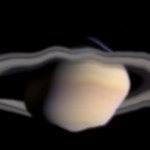Change
Thursday was Eli's end of school graduation - and I thought in honor I'd re-run a post I wrote at ye olde blogge back in 2009. One of the hardest parts of addressing our changing world is dealing with shifting expectations and assumptions, and not getting mired down in sadness or anger. I think one of the things that has helped me is that we've had to do this in other ways before. This year is Eli's last one at the nurturing school for kids with autism that he's attended since kindergarten, and I found myself thinking about this a lot this week.
There are, of course, plenty of moments in…
"All things move and nothing remains still" -- Heraclitus
The history of astronomy can be read as a story of better and better vision. Over the centuries, we have supplemented our vision with technology that allows us to see further and more clearly; while Ancient astronomers, who relied only on their naked eyes to perceive the universe, managed to make star catalogues and predict comets, Galileo, pressing his to a telescope, saw all the way to the moons of Jupiter.
Optical telescopes and the human eye are fundamentally limited; early astronomers were forced to gaze into telescopes for…
In his seminal 1991 essay, "The Work of Art in the Age of Digital Reproduction," the video artist Douglas Davis writes that digital bits "can be endlessly reproduced, without degradation, always the same, always perfect."
This is different, Davis argues, from analogue information. In the past, copying an audio signal -- for example, dubbing a copy of a cassette tape -- always involved an unpredictable loss of clarity, which Davis compares to waves washing on a beach, always breaking slightly differently. But "digital bits, compatible with the new generation of tools that see, hear, speak,…
Sure, astronomers might not call it a planet anymore, but every schoolchild knows how badass Pluto really is. It's got a giant moon, Charon, and two smaller ones, Hydra and Nix.
In addition to being colder than ice with an average temperature of 44 Kelvin (that's colder than liquid nitrogen), I'm here to bring you the news that despite the fact that it's so cold and so far from the Sun, Pluto has been melting!
Since its discovery by Clyde Tombaugh in 1930, astronomers have been fascinated with Pluto, making very careful observations of it, trying to learn more about this bizarre, icy sphere…

